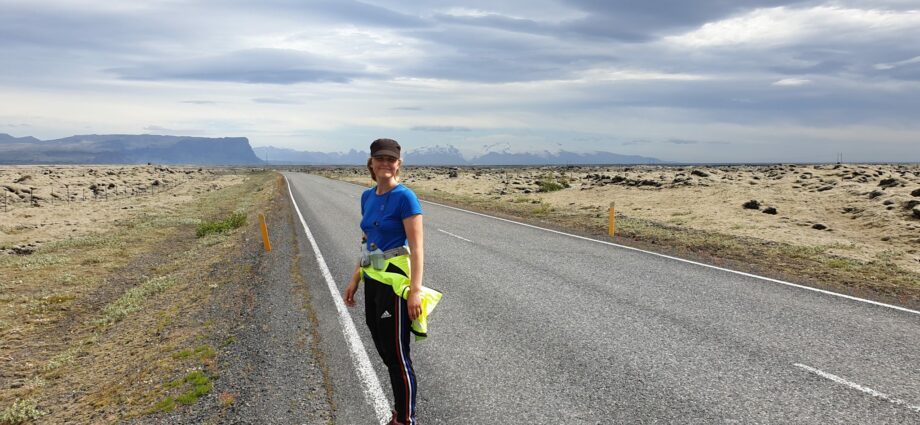I received an education which emphasized the independence of women and their strength. I reproduced this with my children, to whom I gave Icelandic names of Vikings and Valkyries, the powerful warriors of Norse mythology. I am very proud of my heritage. When I was little, my father used to say to me: “If one day someone tells you that a woman is inferior to a man, tell him that it is wrong!”. My daughter is aptly named, I feel her solid.
The Icelandic child hardens and quickly becomes independent. At 6, he goes to school on his own, even though there is a snowstorm. And at 9, he stays home alone if necessary. We are living on a full parity model. The father gets up at night even if the mother is breastfeeding. He accompanies it, and that seems obvious to me. My father took care of my brother, sister and me as much as my mother, who worked just like him. I remember she had taken evening classes when we were little, and he took care of us without any problem.
We give‘ýsi, fish oil (formerly of whale, now of cod) to strengthen the health of babies, an old Viking potion. A spoonful a day to give strength and the vitamins we lack (especially D during the six months at night). It is said that this is why our people are great and strong.
Once in my life, I lost this Valkyrie strength: at the time of childbirth. I was afraid. When I called for the epidural, the midwives and doctors pretended they hadn’t heard. ” You are sure ? They finally asked me, looking surprised. Anesthesia is almost non-existent there, because we prefer other techniques such as showers, baths, rocking seats, acupuncture, etc.
Immediately after giving birth, we are transferred to a room in the hospital called “the nest” (hydrides). These are large rooms, composed of a double bed for young parents, the baby’s bed and the corner to change and wash it. The family is reunited from the start. Midwives are there to show us everything. We get home quickly, but they come home for the first week and make sure we have no problems.
In Iceland, we breastfeed on demand, and everywhere. There are even quiet corners dedicated to mothers in public places. Recently, a politician, Unnur Brá Konráðsdóttir, even breastfed her child in Parliament. We are not a modest people. Parents take baths and showers with their children for a long time, until puberty.
We live a lot outside, so new mothers all go out a week after giving birth.The more air we are, the better the health of the baby will be. We put on special clothes, very warm overalls, mittens and hats. The little ones sleep outside for morning and afternoon naps. In Reykjavik, the capital, strollers can be seen in front of cafes – parents warm and babies outside, sleeping. They have very thick blankets made from local wool, and no sleeping bag.
We have six months of night and six months of day. In summer, to recreate the darkness and make the baby sleep, very thick curtains are used. Conversely, it’s hard to wake them up when you’ve been living in the dark for so long. We are tired and a little sad.
We pay close attention to what we eat: little meat, few industrialized products, mainly fruits and vegetables. Food diversification begins at 6 months with our famous oatmeal, which is also the traditional breakfast. It is a porridge of oatmeal, barley or wheat, cooked in milk, or water, with fruit. We also have sweets, but “Saturday” is even written on the package. It is therefore easy to refuse them to our children, by telling them: “But what day is it? “
For an Icelandic parent, it is very important to develop the imagination of his child. In the evening, we love to tell them elf stories. The majority of the population believes in the existence of these creatures. Our relationship with nature and the elements – wind, air, earth – is also very strong. That’s why, from 4 months old, we bring our babies to the swimming pool, then, from one year old, to the hot springs. Without being afraid of storms or fog, little Icelanders quickly learn to swim and fend for themselves. We trust them.
In video: Mum of the world: in Iceland
Being a mother in Iceland: some figures
Maternity leave: 8 months (to be shared with the father). After the birth, the woman is entitled to 6 months of paid leave with 80% of his salary, or a year with 40%.The father has 2 months.We can also share and do 4 months each, which is quite common. There is a real fairness between mother and father.
Breastfeeding rate: 75% exclusive up to 6 months.
Rate of children per woman: 2,2










